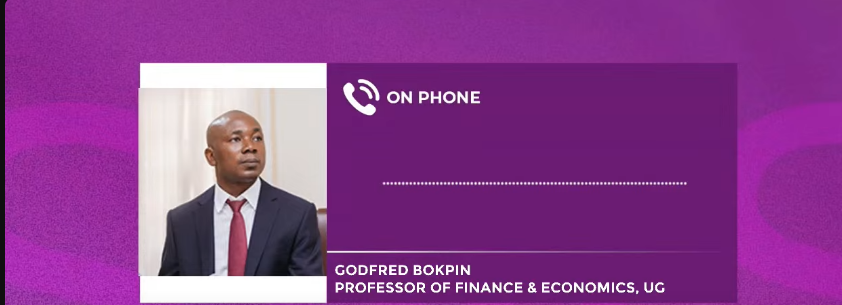ARTICLE AD
THE Dean of the School of Law, University of Ghana (UG), Legon, Professor Raymond Atuguba, has called for the review of the Ghana Education Trust Fund (GETFund) Act and regulations to address financial challenges in the education system.
He said a review of the Act would enable a scrutiny of the fund’s inflows and distribution to ensure transparency and accountability in the education system as well as match the greatest cost drivers in education system to new funds to reduce the financial burden it places on government.
“Match greatest cost drivers in the education system to new existing funds to reduce financial burdens,” he emphasised.
Prof. Atuguba made the call at the 2025 Deans and Directors in Leadership and Advancement Conference organised by the Institutional Advancement Directorate (InAD) of the University of Ghana in Accra yesterday.
This year’s event was on the theme: ‘Navigating International Relations and Aid Dynamics: Accreditation, Fundraising, and Stressors in Higher Education,’ and brought together senior academics including; Prof. Kwasi Dartey–Baah, and Dr Gladys Setordzi.
The conference to serves as a platform for academic leaders to understand the complexities of emerging international relations and evolving aid landscapes with the aim of equipping Deans and Directors with the knowledge and tools necessary to achieve measurable efficiency and success.
Prof. Atuguba emphasised the need for the country to revisit the GETFund formula for distribution and institute new in-country funding streams to support the education sector.
Moreover, he said the current financial difficulties in the education system offered a unique opportunity for African governments to make their universities more self-reliant, stressing that “The government must fulfil the $50million pledge made under the Ghana National Research Fund, established under the Ghana National Research Fund Act (Act 1056) which was passed into law in 2020 to make funds available for research in universities.”
In a message delivered on her behalf by the Provost of the College of Education, Professor Samuel Nii Ardey Codjoe, the Vice-Chancellor of the UG, Professor Nana Aba Appiah Amfo, applauded the InAD for organising the annual conference.
“Today, we have the opportunity to delve into these topics, share our experiences, and learn from each other. I am confident that this conference will foster collaboration and knowledge-sharing among Deans and Directors and this will contribute significantly to our collective efforts in advancing higher education,” she said.
She said the UG was navigating significant funding challenges due to cuts in United States (US) government funding which had affected various institutions, including the Noguchi Memorial Institute, which relied heavily on USAID funding.
“If you take Noguchi, for example that relies a lot on funding from USAID and other organisations and so as a university we have to come together, strategise and see how we can go forward and navigate some of these challenges we are having,” she elaborated.
She said despite these challenges, the UG researchers had secured significant funding, primarily from foreign sources such as the US, UK, Europe, and the European Union amounting to about $17 million this year.
“We are doing so well in terms of our researchers that are foraging for funding from elsewhere. Significantly I think this year, probably about 17 million dollars University of Ghana researchers were able to attract in funding,” she said.
In his address, the InAD, Prof. Kwasi Dartey-Baah, said the complexities of the evolving nature of higher education required that leaders in the management sphere, innovate to find solutions to deal with education.
“As leaders in higher education, we are constantly challenged to adapt to evolving international relations issues and the dynamics of aid. Accreditation processes, fundraising efforts, and the stressors we face require innovative solutions and collaborative approaches. We’re here to dialogue and brainstorm to ensure there is sustainable resource mobilisation within the university,” he emphasised.
BY AGNES OWUSU

 4 hours ago
2
4 hours ago
2 

